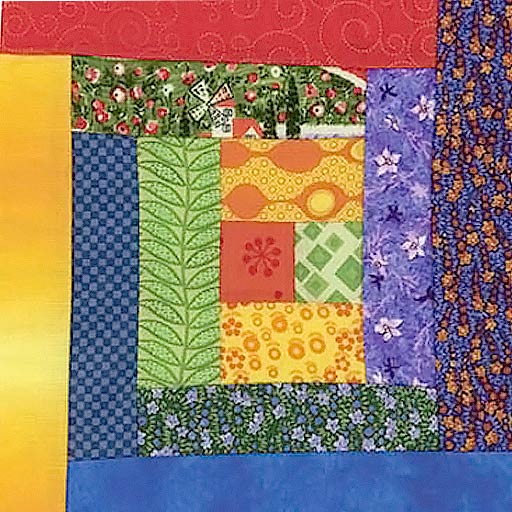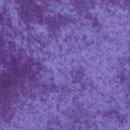I am writing about wisdom
to recover it from esoteric realms
and place it solidly in the middle
of our collective lives
where the world lives or dies,
depending on how wise
we learn how to be
together.Some ways we can be wise
by Tom Atlee, November 2003
When people talk about wisdom, they often use sight-related words like insight, foresight, discernment, farsightedness, brilliance, reflection, illumination, enlightenment, visionary and seer. The owl, often a symbol of wisdom, has prominent eyes that see clearly in the dark, and seem to be watching everything with penetrating attention.
This metaphor of seeing makes a good place to start in our exploration of wisdom.
Among other things, wisdom involves extending our seeing beyond the appearances of life, while also looking deeply into life. We are wise — at least to some degree — whenever we extend our seeing from any small perspective into a larger or deeper perspective. This expansion of perspective takes us closer to encountering the Whole of life. Even though that Whole can never be experienced in its full scope and detail, it seems to me that any motion in its direction is a motion into wisdom.
This way of thinking about wisdom can help us understand ways we could be wiser — individually and collectively. It can help us evaluate the wisdom of decisions, actions, policies, leaders, and so on. As the scope and complexity of our world’s problems grow, so grows our need for wisdom.
So let us consider some ways we are already wise and could be more so.
We are wise when we extend our seeing into the future to the consequences of our present actions — and learn from reflecting on those consequences, especially before we act. There is much wisdom, then, in applying this expanded perspective to help us meet our needs in ways that don’t undermine the ability of our children’s children to meet their needs. Some call this “sustainability.”
We are wise when we extend our seeing beyond the clamor of this moment’s shallow desires and immediate demands and opportunities, to understand and care for our deeper, longer needs. This is doubly wise because, while our desires and appetites may feel vividly personal, private and unique, our deepest needs are universal. Great peace can be found in satisfying them in harmony with others and in co-creating the common good. There is much wisdom in pursuing our own best interests through the pursuit of a world that works for all.
We are wise when we extend our seeing beyond current events — both personal and collective — back into the history behind those events, and forward into possible futures. In that history and those futures lie causes and stories and motivations that call forth the events of today, and that can therefore be worked with to call forth new options and energies on behalf of greater life. There is much wisdom in bringing the power of such Deep Time understandings into the present unfolding of Life.
We are wise when we extend our seeing beyond our personal view — and beyond the dominant view of our group or culture — to hear and understand the views of others. Every view has blind spots, and all knowing rests on unexamined assumptions. As these are revealed through encounters with other views and other knowing, understanding can deepen and become more whole. And so we are wise to value diversity, dissonance and dissent and to learn how to use their potent gifts well, as we’ve learned to use the potent gifts of electricity and fire. There is special wisdom for democracy accessible through the brilliant use of dialogue to help us tap that latent power together on behalf of our whole community.
We are wise to see beyond our narrow plans and wishes to the larger field of life within which we are pursuing those plans and wishes. Other lives and greater forces are at work in that field, whose presence can aid or hinder our efforts and whose journey is impacted by ours. There is great wisdom available in understanding those indigenous lives and forces well enough to work with them, collaborating in the co-creation of outcomes that serve all parties involved, using thoughtful inclusion, existing passions, and cultivated synergies to proceed with more elegance than effort.
We are wise when we extend our seeing beyond convenient labels and judgments, to see things more as they are, which is always beyond labels and judgments — and even beyond words. “There is more to it than that, always.” We are wise to become familiar with the ways our personal thoughts and feelings — and, collectively, our culture and media — trick us into narrowing our view. This awareness can help us return to a bigger, truer picture of life where greater wisdom awaits us.
In particular, it is wise to see beyond the dichotomies dictated by our culture, our language, our preferences. Good and bad, order and chaos, individual and collective, you and me, simplicity and complexity — these tantalizingly useful distinctions hide the fact that reality, in all its dynamic wholeness, embraces both sides of every dichotomy. There are ways in which order and chaos, good and bad, individual and collective not only define and depend on each other, but live within each other and dance together. Much wisdom lies in coming to understand that, and joining that dance, lightly and mindfully.
We are wise to see beyond isolated facts and linear logic into the whole fabric of life, using all the forms of knowing that are given to us, particularly intuition, heart, synthesis, spiritual experience, and the sciences that attempt to appreciate the whole and our relationship to it — such as ecology, living systems science, complexity and chaos theories, quantum mechanics and the consciousness sciences. With each way of knowing we access new dimensions of reality. Much wisdom lies in weaving them together, painting our knowing with a full palette and using each tool in our cognitive toolbox according its best purpose, along with all the others, and letting none colonize our awareness to the exclusion of the rest.
We are wise when we see beyond certainty to the underlying, all encompassing, ever unfolding Mystery of life. Not only does this lighten our ideological burden and open us to each Other and to Change, but it allows us to befriend the ultimately unknowable Whole. Once we see through the illusion of certainty, humility is natural, humor is natural, and paradox, ambiguity and change become furry friends and teachers on our Journey though life. In the midst of wonder, we encounter each situation with the curiosity and sense of adventure befitting wise and joyful spirits — and our wisdom expands through the learning we do as we marvel at the nuance and vastness we encounter at each bend in the road.
We are wise, in general, as we see beyond our personal world — or through it, deeply — to the world of our fellow humans and all other life. We can track this larger reality through our own opened hearts or through the rich fabric of natural and social systems studded with living beings and their stories. This reaching into the world of other lives is the wisdom of compassion — and of what has come to be called “enlightened self-interest,” the realization that our destiny is bound up with the destiny of all others. At the center where we are most deeply ourselves, we are also most deeply kin to all Life, and no one’s story is fully alien to us. From that deep common center — and from realization of our vast and vivid interdependence — flow many soulfully effective solutions to the diverse sufferings of our world and its people. We need our wisest eyes to find them.
Those wise eyes are ours. We share those eyes. We could see through them together, if only we would look together.

